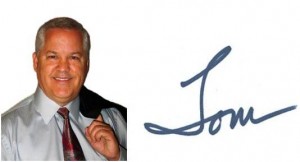 Every professional experiences the moment when what they know is questioned. By implication, this moment also questions their value. That is, if they know something and are convincing to others, the professional is perceived to be valuable. On the other hand, if they do not know an important point or are unconvincing about what they do know, the professional is valued less (or not at all).
Every professional experiences the moment when what they know is questioned. By implication, this moment also questions their value. That is, if they know something and are convincing to others, the professional is perceived to be valuable. On the other hand, if they do not know an important point or are unconvincing about what they do know, the professional is valued less (or not at all).
It is the way of the world, at least in knowledge positions within today’s economy.
There is another side, of course. Some people are completely convincing without the knowledge or experience to support what they advocate. Their self-confidence radiates within a room and casts a spell. People agree with this kind of person implicitly and are willing to follow him or her. Later, it may be clear that their confidence was misplaced. Then, a sense of betrayal replaces the false confidence. Convincing, yes, but (in the long term) they are not credible.
Competitive intelligence professionals routinely deal with knowledge. There are facts about the competitive environment, advanced data collection tools, powerful analytical models and insightful interviewing approaches. Awash with information, a competitive intelligence project usually ends with some type of report or presentation. Then, the facts, interpretations and recommendations are displayed for a sometimes-skeptical senior management audience. Attitudes of “convince me” and “prove it” often challenge the competitive intelligence professional’s performance and credibility. The obvious temptation is to emphasize expertise and exclude doubts, right? After all, is not humility a sign of weakness?
Unsurprisingly, there should be a balance between honest humility and expressed expertise. This balance is not contrived. Rather, it reflects what is true for most people. That is, the more that we know, the more we realize that we do not know. Put another way, whatever we know today, it will not be enough for tomorrow. Hence, we need a way to live with ourselves while delivering valuable services to others. We need to be able to explain what we do not know with as much credibility as we covey our certainties. (See my article on “The Right Answer to the Trap Question” for one approach.)
How do we do that? Here are seven guidelines that I use to balance my expertise and my humility.
- Know a Lot – This may seem like an odd way to start the guidelines but there is no way to dance around the simple fact that you must know a lot about your business, customers and competitive intelligence. Knowledge is essential for long-term survival and you should set specific objectives for acquiring it over time. Complacent ignorance will not work.
- Learning Disposition –For the many things that you do not yet know, you should demonstrate a ready willingness to learn. Insecure people are embarrassed when others point out their ignorance. Instead of blushing, practice sincerely thanking people that identify gaps in your knowledge. Follow the thanks with a request for them to help you learn about what is missing and then commit to integrate the new information as soon as is possible.
- Discover Boundaries – This might sound a little defensive and it is surely a sensitive task to execute. Simply, find out what others do not know. Gently compare their knowledge gaps with your own. Offer to help them gain important knowledge with the implicit thought that they can return the favor. In short, build a relationship that focuses on moving forward together.
- Assess Confidence – I have heard it said that we are only certain about the past. That is not true. You need only read competing histories of some major personality or event to understand that even reputable historians cannot agree on one account. Even more, the future is unclear. Therefore, practice succinct assumption summaries for each communication. Then, give a confidence assessment for each major analysis and recommendation. These steps will relieve you from mistakenly asserting certainty and involve others in richer discussions of meaning and trustworthiness.
- Convey Proactively – I know from watching courtroom dramas that the smart lawyer anticipates the toughest questions for his or her client and intentionally asks them first. That approach blunts the dramatic confrontation and shifts attention to the rest of the story. In competitive intelligence, why not feature first what we might fear most. That is, convey proactively the weaknesses of the analysis or recommendations. This only works when there is a concomitant plan to remedy the weaknesses.
- Live for the Long Term – It is easier to think of a question that has no current answer than to have answers for every possible query. Thus, everyone will experience the moment when a good question is asked but no good answer is known. Take a long-term view and do not dwell on the incident. If you are adhering to the other guidelines, you either have or will build the personal credibility that makes survival possible. Understand that sustained performance usually trumps an awkward moment.
- Accept Limitations – Finally, feeling peace in your role means that you accept that satisfying all customers is unlikely. Most people and organizations have finite resources and bandwidth. One customer’s priorities may be mysterious or unwise to other equally high-ranking people. When appropriate, appeal to common values of the organization and express interest in working with others later. Be sure to keep open communication because today’s critic may be tomorrow’s funding customer.
Humility and expertise are not opposites. Both exist in a competent competitive intelligence professional. When demonstrated appropriately, they signal an authenticity to customers that they trust and value. On the other hand, overemphasizing one to the detriment of the other actually signals weakness.
Keep them in balance and prosper.


no comment until now